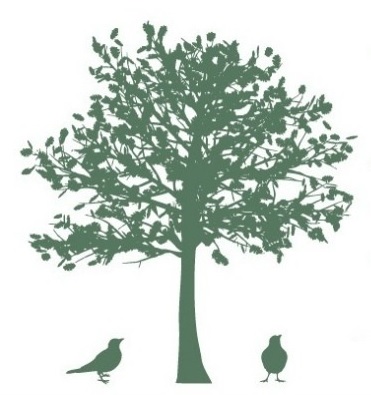 Your friend’s pet just passed away, and she’s devastated. While you know it’s a sad time, you may not be able to grasp the emotional turmoil she’s experiencing if you’ve never owned a pet. “Pet parents are made to feel guilty when their grief is more extreme than it would be for a human being,” says Coleen Ellis, founder of Two Hearts Pet Loss Center. But a recent survey shows that 91% of pet owners think of their companion animals as family. For your friend, that means losing her little one is like losing a spouse, child, sibling or parent. And that’s why you should avoid making these nine hurtful comments.
Your friend’s pet just passed away, and she’s devastated. While you know it’s a sad time, you may not be able to grasp the emotional turmoil she’s experiencing if you’ve never owned a pet. “Pet parents are made to feel guilty when their grief is more extreme than it would be for a human being,” says Coleen Ellis, founder of Two Hearts Pet Loss Center. But a recent survey shows that 91% of pet owners think of their companion animals as family. For your friend, that means losing her little one is like losing a spouse, child, sibling or parent. And that’s why you should avoid making these nine hurtful comments.
1. “It was just an animal.”
After her 12-year-old dalmatian died, Teresa Henderson of Dallas, TX, was crushed when her mother-in-law implied he wasn’t family. “Buster was there for us every day,” she says. Minimizing the loss is one of the worst things you can do, says Stephanie LaFarge, PhD, senior director of counseling services at the American Society for the Prevention of Cruelty to Animals (ASPCA). “Let the owner know that you respect the grief she’s feeling,” recommends Dr. LaFarge. Show your support by sending a card or donating to a local shelter in the pet’s name.
2. “You can always get another one.”
“I was surprised that people told me to replace Mystery right away,” says Madison, WI, native Niki Young, whose 13-year-old husky-lab mix passed away last year. “I needed time to reflect on our relationship.” You may think getting a new pet will make your friend feel better, but owners often aren’t emotionally or financially prepared to welcome another animal, says Marty Becker, DVM, a featured columnist at VetStreet.com. “Don’t bring up the subject until she starts hinting that she’s ready,” he advises.
3. “You knew his life would be short.”
When a person first picks up her new puppy or kitten, the last thing on her mind is the number of years they’ll have together. “Sometimes people just fall in love and don’t think about the animal’s lifespan,” says Dr. Becker. Besides, that short life lasts many years, which is long enough for an owner to be quite upset when her beloved buddy dies. Reminding a friend of the pet’s limited years “won’t change the emotional response she has,” says Dr. LaFarge. “It’s better to empathize with her and not try to talk her out of her grief.”
4. “You’ll have so much free time now that he’s gone.”
You may mean well, but pointing out the positive aspects of the pet’s absence can come off as insensitive. “That comment emphasized the fact that Mystery wasn’t around and I missed her a lot,” says Niki. A major no-no: reminding your friend that she’ll be free to go on vacation. “It may be true, but it’s painful because it’s part of the loss,” says Dr. LaFarge. Focus instead on the special relationship she shared with her pet.
5. “I can’t believe how much you spent on treatment.”
It’s never a good idea to question how much or even how little your friend put into treatment for her terminally ill pet, especially after the death. Some people may spend all their savings to hold on to their cuddly lifeline. Others can’t afford certain procedures. “You don’t want her to feel guilty for whatever decision she made,” says Dr. Becker. Think of it this way: You wouldn’t criticize how she pays for her car or home, so don’t comment on how she funded her pet’s healthcare.
6. “That breed always has problems. Don’t get another one.”
For some pet parents, a particular breed holds sentimental value. “Many people grow up with a favorite family pet and become attached to that breed,” explains Dr. Becker. “The animal is a way to pay tribute to family.” Though you shouldn’t totally ignore your concerns about a certain breed’s health problems, never give your friend an ultimatum about what kind of pet she should get next. “You can caution her against making that choice, but don’t add that she shouldn’t get another one,” says Dr. LaFarge.
7. “Why do you still have those toys?”
When her nine-year-old boxer began battling pancreatitis, Teresa was hurt when a friend called her out for holding onto her baby’s treasures. “She made it seem like the toys weren’t a big deal,” she says. “It felt callous.” Even though the toys may seem useless to you, owners will hold on to their animals’ keepsakes for years. “Those things are like totems,” says Dr. Becker. “Some people will leave out the food bowl or bed as a memorial to that pet.” If you can’t think of anything positive to say, avoid talking about the animal’s belongings.
8. “I can’t believe you’d keep the remains in your living room!”
Regardless of how crazy it might seem to you, having an urn on display is your friend’s way of remembering the life of her furry comrade. If she feels like you’re shaming her decision, she may hide her feelings from you completely. “Pet parents are forced to second-guess how their actions will be perceived by others,” says Ellis. Instead of letting your friend mourn alone, listen to what she plans to do without passing judgment.
9. “Why is it taking you so long to get over this?”
After having a loyal and loving animal by your side day and night, it can be extremely trying as an owner to cope with the death. “Even the most put-together person can spend years getting over the loss,” says Dr. Becker. Steer clear of chiding your friend about moving back to reality and acknowledge the hardship she’s experiencing. “Honor her story by asking about the pet and letting her share,” suggests Ellis. Showing that you understand the loss’s significance is the most important thing.











The people who make those comments just do not “get” the love nor the bond we share with our furry kids! There is also a huge quantity of ignorance and lack of sensitivity. I have removed all people who process that ignorance and lack if sensitivity from my world; with no regrets. Sherri
Sent from my iPhone